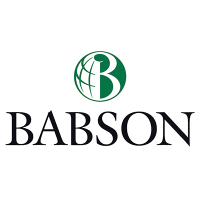What do they do?
Recruit, screen, interview, or place individuals within an organization. May perform other activities in multiple human resources areas.
Also known as:
Corporate Recruiter, Employment Representative, Employment Service Specialist, Employment Specialist, Executive Recruiter, Healthcare Recruiter, HR Analyst (Human Resources Analyst), HR Consultant (Human Resources Consultant), HR Coordinator (Human Resources Coordinator), HR Generalist (Human Resources Generalist), HR Tech (Human Resources Technician), Human Resources Representative (HR Rep), Human Resources Specialist (HR Specialist), Labor Services Representative, Personnel Analyst, Personnel Coordinator, Personnel Officer, Personnel Specialist, Personnel Technician, Placement Counselor, Recruiter, Staffing Coordinator, Staffing Specialist, Talent Acquisition Specialist, Technical Recruiter
-
9.4%
Change
Ranks #41 in job growth rate3,230Job Openings
Ranks #7 in net job growth
-
Babson College
Wellesley, MA
-
University of Richmond
University of Richmond, VA
-
Chapman University
Orange, CA
-
University of Southern California
Los Angeles, CA
-
Boston University
Boston, MA
Looking for colleges that offer a specific major? Use the College Match Tool to find your best-matched schools and discover your estimated Net Price!
- Doctorate or Professional Degree (2%)
- Master's degree (18%)
- Bachelor's degree (45%)
- Associate's degree (8%)
- Some college, no degree (16%)
- High school diploma equivalent (9%)
- Less than high school diploma (1%)
Most Popular Majors that prepare Human Resources Specialists
-
#1
-
Degrees Granted
136,380
-
Female Students
63,904
-
Male Students
72,476
-
Median Starting Salary
$39,500
-
-
#2
-
Degrees Granted
6,498
-
Female Students
4,737
-
Male Students
1,761
-
Median Starting Salary
$40,400
-
-
#3
-
Degrees Granted
1,840
-
Female Students
1,017
-
Male Students
823
-
Median Starting Salary
$40,400
-
-
#4
-
Degrees Granted
393
-
Female Students
272
-
Male Students
121
-
Median Starting Salary
$40,400
-
-
#5
-
Degrees Granted
360
-
Female Students
254
-
Male Students
106
-
Median Starting Salary
$44,000
-
People in this career often have these skills:
- Speaking - Talking to others to convey information effectively.
- Reading Comprehension - Understanding written sentences and paragraphs in work-related documents.
- Active Listening - Giving full attention to what other people are saying, taking time to understand the points being made, asking questions as appropriate, and not interrupting at inappropriate times.
- Writing - Communicating effectively in writing as appropriate for the needs of the audience.
- Critical Thinking - Using logic and reasoning to identify the strengths and weaknesses of alternative solutions, conclusions, or approaches to problems.
- Social Perceptiveness - Being aware of others' reactions and understanding why they react as they do.
- Service Orientation - Actively looking for ways to help people.
People in this career often know a lot about:
- Personnel and Human Resources - Knowledge of principles and procedures for personnel recruitment, selection, training, compensation and benefits, labor relations and negotiation, and personnel information systems.
- Administrative - Knowledge of administrative and office procedures and systems such as word processing, managing files and records, stenography and transcription, designing forms, and workplace terminology.
- Administration and Management - Knowledge of business and management principles involved in strategic planning, resource allocation, human resources modeling, leadership technique, production methods, and coordination of people and resources.
- English Language - Knowledge of the structure and content of the English language including the meaning and spelling of words, rules of composition, and grammar.
- Customer and Personal Service - Knowledge of principles and processes for providing customer and personal services. This includes customer needs assessment, meeting quality standards for services, and evaluation of customer satisfaction.
People in this career often have talent in:
- Oral Comprehension - The ability to listen to and understand information and ideas presented through spoken words and sentences.
- Written Comprehension - The ability to read and understand information and ideas presented in writing.
- Oral Expression - The ability to communicate information and ideas in speaking so others will understand.
- Written Expression - The ability to communicate information and ideas in writing so others will understand.
- Problem Sensitivity - The ability to tell when something is wrong or is likely to go wrong. It does not involve solving the problem, only recognizing that there is a problem.
- Deductive Reasoning - The ability to apply general rules to specific problems to produce answers that make sense.
- Speech Recognition - The ability to identify and understand the speech of another person.
- Speech Clarity - The ability to speak clearly so others can understand you.
- Near Vision - The ability to see details at close range (within a few feet of the observer).
People in this career often do these activities:
- Explain regulations, policies, or procedures.
- Administer personnel recruitment or hiring activities.
- Perform human resources activities.
- Administer compensation or benefits programs.
- Update knowledge of legal or regulatory environments.
- Maintain data in information systems or databases.
- Evaluate personnel practices to ensure adherence to regulations.
- Verify application data to determine program eligibility.
- Coordinate personnel recruitment activities.
- Develop training materials.
- Train personnel to enhance job skills.
- Review license or permit applications.
- Maintain records, documents, or other files.
- Discuss business strategies, practices, or policies with managers.
- Advise others on business or operational matters.
- Inform individuals or organizations of status or findings.
- Interview employees, customers, or others to collect information.
- Conduct eligibility or selection interviews.
- Train personnel on managerial topics.
- Evaluate effectiveness of personnel policies or practices.
- Prepare operational reports.
- Advise others on human resources topics.
This page includes data from:

 Occupation statistics: USDOL U.S. Bureau of Labor Statistics Occupational Employment Statistics
Occupation statistics: USDOL U.S. Bureau of Labor Statistics Occupational Employment Statistics
 Videos: CareerOneStop, USDOL/ETA and the Minnesota Department of Employment & Economic Development
Videos: CareerOneStop, USDOL/ETA and the Minnesota Department of Employment & Economic Development









